Photographer Vanley Burke to mentor black artists in Gloucester
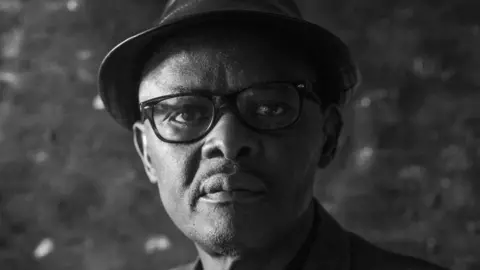 Vanley Burke
Vanley BurkeVanley Burke's work is regarded as the greatest photographic record of African Caribbean people in post-war Britain, capturing its evolving cultural landscape and social history over the past four decades. He is now working with black artists in Gloucester to create a black history of the city and will be a guest speaker at the Gloucester History Festival on 17 April.
"In the 60s and 70s the way that black people were represented was in derogatory statements like 'lazy' or 'go back home'," Mr Burke said,
"People came to Britain to serve in the two world wars and contribute to this country, but they were not being represented in a meaningful way.
"I was interested in tackling that, because I did not see the life that I was living, and of people in my community, reflected in the media."
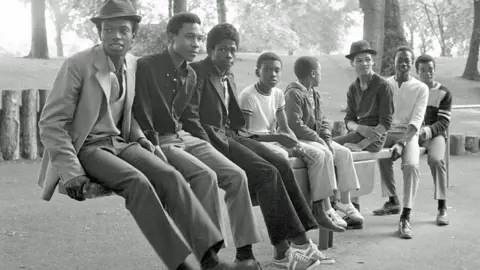 Vanley Burke
Vanley BurkeOften described as the 'godfather of black British photography' in the media, Vanley Burke said he simply sees himself as a custodian of history.
"I think I started out as the grandfather of British black photography at one point, so I guess I have been promoted, but I try not to think about what people say about me," Mr Burke said.
Born in Jamaica in 1951, Mr Burke came to the UK when he was 14 years old and lived with his family above their grocery shop in Birmingham.
He brought with him the box brownie camera his mother gave him for his 10th birthday, but it was only eight years later that he decided to start taking photographs to capture the life of his community.
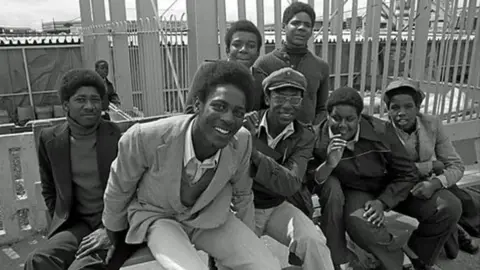 Vanley Burke
Vanley BurkeHis images have told the story of black Britain throughout the decades and have been exhibited across the world, and used in film and television.
Mr Burke has photographed protest marches including the African Liberation Day rally in Birmingham in 1977, and riots in Birmingham in 1981 and 1985.
"The history of this country and of the working class is a history of protest," he said.
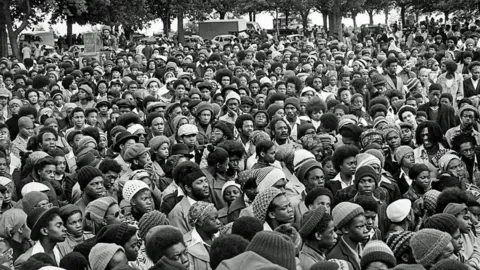 Vanley Burke
Vanley Burke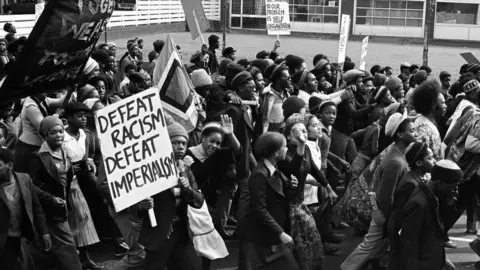 Vanley Burke
Vanley BurkeIn a project with Gloucestershire Archives and youth education scheme, Fresh Air Foundations, Mr Burke is now working with black photographers, artists and writers in Gloucester to help them document a history of black communities in the city.
"It's so important for young people themselves to document their own histories for generations to come so they have control over how they are represented," he said.
Heather Forbes, head of archives, said: "This is an amazing opportunity for Gloucestershire Archives to listen, learn and help gather and preserve under-represented voices and their contribution to Gloucester for current and future generations."
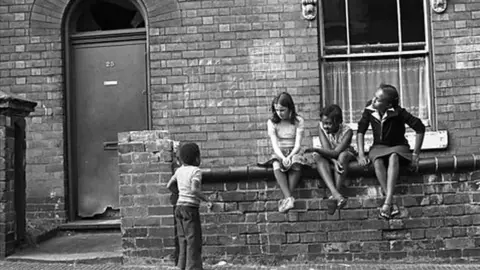 Vanley Burke
Vanley Burke